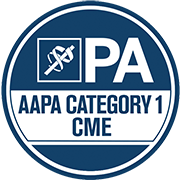What's Important: A Patient-Centered Approach to Contraceptive Counseling
PICCK has developed What’s Important: A Patient-Centered Approach to Contraceptive Counseling, a new e-learning course for healthcare professionals to redefine the goal of contraceptive counseling by focusing on the patient’s needs and values, understanding the influence of bias and coercion in contraceptive care, and discovering what a shared decision-making approach to contraceptive counseling can do to improve the quality of care you provide. This interactive, self-paced learning activity includes reflection questions, case studies, and instructional videos so providers have the opportunity to view patient-centered contraceptive counseling in action.
This course was created by Partners in Contraceptive Choice and Knowledge (PICCK). PICCK was a five-year program funded by the Executive Office of Health and Human Services, Commonwealth of Massachusetts and housed at Boston Medical Center/Boston University Chobanian & Avedisian School of Medicine.
Target Audience
Healthcare professionals and students who provide contraceptive counseling including but not limited to physicians, nurse practitioners, physician assistants, midwives, nurses, health educators, medical assistants, and social workers. This e-learning course is designed for providers who work with pregnancy capable patients, not just those who specialize in family planning or OB/GYN.
Prerequisites
Please complete the pre-course evaluation survey. Prior training or education about implicit bias, microaggressions, and trauma-informed care is helpful but not required. For more on these subjects, explore the hyperlinked resources within the course.
e-learning Software
This course was created using Rise and Storyline 360. It is best completed on a laptop or desktop computer or tablet. While this course can be completed on a phone, for optimal viewing we recommend using a computer or tablet.
There are audio components to this course. We encourage you to have a device with audio capability and, if desired, headphones. Some audio transcripts are available.
Learning Objectives
At the end of this activity, the learner or the healthcare team should be better able to:
1. Explore current research associated with quality contraceptive counseling.
2. Describe how racism and coercion are embedded in the reproductive healthcare system.
3. Identify ways that bias can negatively impact patients’ experience of contraceptive counseling.
4. Explain how a shared decision-making approach centers the patient’s needs, values, and autonomy in contraceptive counseling.
5. Describe the steps within the PHI CARE approach to contraceptive counseling.
Course Overview | ||
Time | Module | Description |
5 minutes | Introduction | Welcome to What’s Important: A Patient-Centered Approach to Contraceptive Counseling! |
15-25 minutes | Module 1 - Reproductive goals and desires: the gap between providers and patients | In this module, we explore the factors and motivations that inform patients' contraceptive decision-making. |
45-55 minutes | Module 2 - Contraceptive counseling within context: historical, structural, and individual factors | In this module, we examine historical, structural, and individual forces that shape contraceptive services today, including the ways that bias and coercion may show up in clinical care. |
15-20 minutes | Module 3 - Shared decision-making: a patient-centered approach to contraceptive counseling | In this module, we introduce a patient-centered shared decision-making approach to counseling.
|
25-35 minutes | Module 4 - PHI CARE: a standardized approach to shared decision-making | In this module, we explore a standardized tool for implementing this approach to counseling. |
25-35 minutes | Module 5 - PHI CARE in practice | In this module, learners will practice implementing this counseling approach with seven interactive case studies. We end with some tips for implementing this approach in personal counseling or at a practice-level. |
5 minutes | Conclusion | Thank you for completing What’s Important: A Patient-Centered Approach to Contraceptive Counseling! |
You can stop the course at any time and come back to it. You must complete the entire course to receive continuing education credit. After completing all modules, you will close the course window and return here to the Boston University Learning Management System to complete the post-activity evaluation. Here you will also be able to claim credit, if you desire.
Online via Articulate.
When you begin the course, a new window will appear. Please complete the course in this separate window. Once you complete the course, you will need to return to this page in order to complete the post-test, evaluation, and claim credit.
Disclosure Policy
Boston University Chobanian & Avedisian School of Medicine asks all individuals involved in the development and presentation of Accredited Continuing Education activities to disclose all financial relationships with ineligible companies. This information is disclosed to all activity participants prior to the start of the educational activity. Boston University Chobanian & Avedisian School of Medicine has procedures to mitigate all relevant financial relationships with ineligible companies. In addition, faculty members are asked to disclose when any unapproved use of pharmaceuticals and devices is being discussed.
In accordance with the Standards for Integrity and Independence in Accredited Continuing Education, all relevant financial relationships that faculty, planners, authors, and anyone who may be in control of content have with ineligible companies have been mitigated.
Faculty and Planners
Katharine White, MD MPH | Vice-Chair of Academics, Department of OB/GYN, Boston Medical Center |
Elizabeth Raskin, MSW MPH | Senior Training and Learning Specialist, Partners in Contraceptive Choice and Knowledge (PICCK) |
Natasha Lerner, DrPH MPA | Program Director, Partners in Contraceptive Choice and Knowledge (PICCK) |
Lily Acton, MPH | Program Manager, Partners in Contraceptive Choice and Knowledge (PICCK) |
Jennifer Farraye, NP | Assistant Professor of Obstetrics and Gynecology, Boston University School of Medicine |
Karissa Giovannini, MWS LICSW | Social Work Manager, Project RESPECT, Boston Medical Center |
Kiersten LaRoche, PA-C | Physician Assistant, Obstetrics and Gynecology, Boston Medical Center |
Planning Committee
Katharine White, MD MPH receives research support from Boston Medical Center via Bayer Pharmaceuticals, Merck & Co., Inc., and Evofem Biosciences grants.
Lily Acton, MPH; Jenn Farraye, NP; Karissa Giovannina, MSW, LICSW; Kiersten LaRoche, PA-C; Natasha Lerner, DrPH, MPA; and the content development specialist Elizabeth Raskin MPH, MSW of Boston Medical Center have no relevant financial relationships to disclose.
Accreditor Disclosure
The following planning committee members from Boston University School of Medicine’s Office of Continuing Medical Education have no relevant financial relationships with ineligible companies: Michael Burk, BS – Senior Program Manager
Disclaimer
THIS CONTINUING EDUCATION PROGRAM IS INTENDED SOLELY FOR EDUCATIONAL PURPOSES FOR QUALIFIED HEALTH CARE PROFESSIONALS. IN NO EVENT SHALL BOSTON UNIVERSITY BE LIABLE FOR ANY DECISION MADE OR ACTION TAKEN IN RELIANCE ON THE INFORMATION CONTAINED IN THE PROGRAM. IN NO EVENT SHOULD THE INFORMATION CONTAINED IN THE PROGRAM BE USED AS A SUBSTITUTE FOR PROFESSIONAL CARE. NO PHYSICIAN-PATIENT RELATIONSHIP IS BEING ESTABLISHED. IN NO EVENT SHOULD INFORMATION IN THE MATERIALS REGARDING LAWS, REGULATIONS, OR LEGAL LIABILITY BE CONSIDERED LEGAL ADVICE OR USED AS A SUBSTITUTE FOR CONSULTING WITH AN ATTORNEY.

Joint Accreditation Statement
In support of improving patient care, this activity has been planned and implemented by Boston University Chobanian & Avedisian School of Medicine and Atrius Health. Boston University Chobanian & Avedisian School of Medicine is jointly accredited by the Accreditation Council for Continuing Medical Education (ACCME), the Accreditation Council for Pharmacy Education (ACPE), and the American Nurses Credentialing Center (ANCC), to provide continuing education for the healthcare team.
Physician AMA PRA Category 1 Credit™
Boston University Chobanian & Avedisian School of Medicine designates this live activity for a maximum of 4.5 AMA PRA Category 1 Credit(s)™. Physicians should claim only the credit commensurate with the extent of their participation in the activity.
Nursing Accreditation
Contact Hours: 4.5, none of which are eligible for pharmacology credit
Social Work
As a Jointly Accredited Organization, Boston University Chobanian & Avedisian School of Medicine is approved to offer social work continuing education by the Association of Social Work Boards (ASWB) Approved Continuing Education (ACE) program. Organizations, not individual courses, are approved under this program. Regulatory boards are the final authority on courses accepted for continuing education credit. Social workers completing this course receive 4.5 clinical continuing education credits.

AAPA
Boston University Chobanian & Avedisian School of Medicine has been authorized by the American Academy of PAs (AAPA) to award AAPA Category 1 CME credit for activities planned in accordance with AAPA CME Criteria. This activity is designated for 4.5 AAPA Category 1 CME credits. Approval is valid until 10/2/24. PAs should only claim credit commensurate with the extent of their participation.
Interprofessional Continuing Education Credit
This activity was planned by and for the healthcare team, and learners will receive 4.5 Interprofessional Continuing Education (IPCE) credits for learning and change.
Available Credit
- 4.50 AAPA Category I CME
- 4.50 AMA PRA Category 1 Credit™
Boston University Chobanian & Avedisian School of Medicine designates this Enduring activity for a maximum of 4.50 AMA PRA Category 1 Credit™. Physicians should claim only the credit commensurate with the extent of their participation in the activity.
- 4.50 ANCC
- 4.50 Social Work (ACE)
- 4.50 Participation

 Facebook
Facebook X
X LinkedIn
LinkedIn Forward
Forward